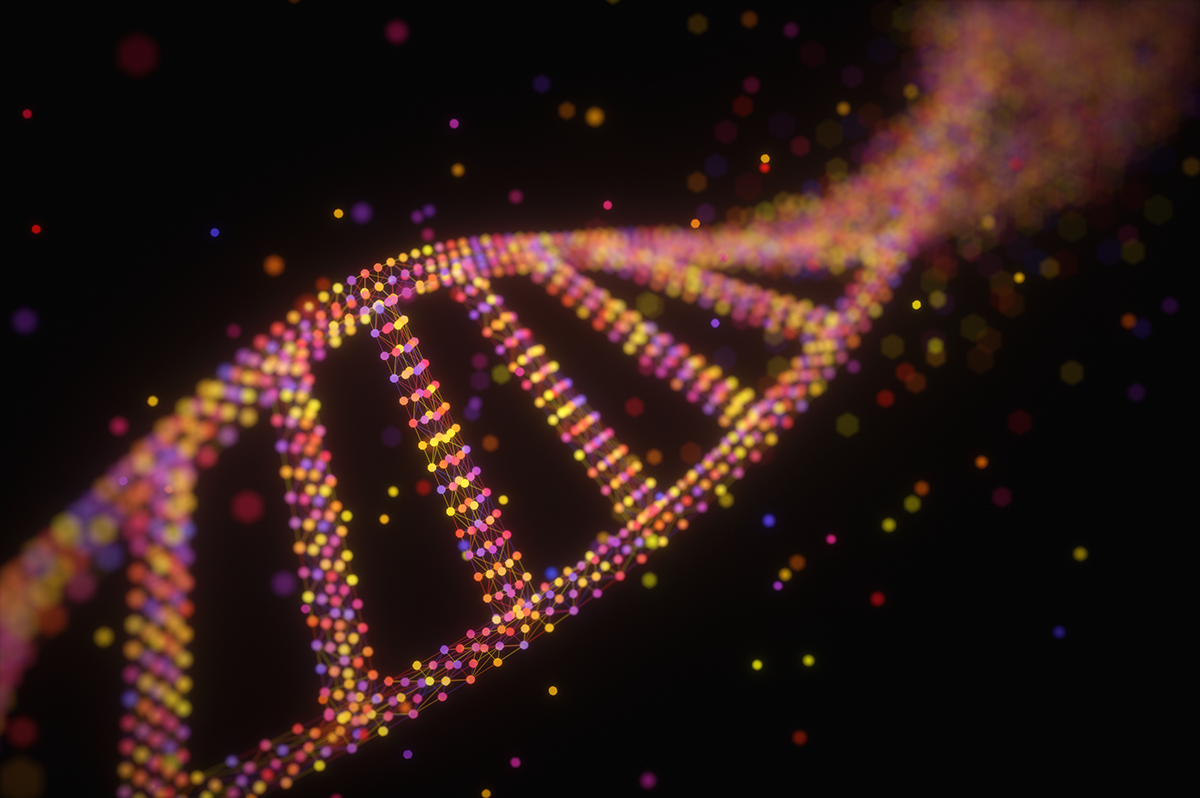Cancer Organization Recommends Genetic Testing for Jewish People of Ashkenazi Descent

Posted in Lombardi Stories | Tagged breast cancer, cancer, genetic counseling, genetic testing, prostate cancer
(January 28, 2020) — New guidelines from a leading cancer organization have broadened criteria for hereditary cancer genetic testing. The change means more people who could be at increased risk of developing cancer should consider being tested.
The guidelines, released in December 2019 by the National Comprehensive Cancer Network, now indicate that all adult Ashkenazi Jewish men and women — individuals with at least one Jewish grandparent from Central or Eastern Europe — may be offered testing for three commonly inherited mutations in the BRCA1 and BRCA2 (BRCA1/2) genes.
Everyone has BRCA1 and BRCA2 genes. However, researchers estimate that 1 in 40 Jews carries a mutation, or harmful change, in these genes compared to at least a 1 in 400 chance that a non-Jewish person carries any mutation. The chance of carrying a mutation increases in those with a personal or family history of related cancers, but studies have shown that over half of Jewish individuals who test positive have no personal or family history of cancer.
Managing Risk
“Finding a mutation doesn’t mean the person is destined to develop cancer, but it does increase their risk of developing certain types of cancer,” says Kelsey Newell, MS, CGC, a Georgetown Lombardi genetic counselor.
Women with a BRCA1 or BRCA2 mutation have very high risks of breast and ovarian cancer. Surgery to remove the ovaries and fallopian tubes is strongly recommended and significantly lowers the chance of dying from ovarian cancer, which is difficult to detect with screening. Men with a mutation in these genes face increased risks for aggressive prostate cancer.
“These can be very difficult decisions to make,” says Newell. “Although surgery is the best way to manage ovarian cancer risk, some women may choose earlier and increased monitoring for breast cancer, such as with MRI scans, and men can undergo PSA screening for prostate cancer.”
Population Testing
Since 2014, the prospect of implementing “population testing” in the U.S. has been hotly debated. That is, should all adults, especially women, be offered testing for mutations in the BRCA1 and BRCA2 genes?
“We are quickly entering a new era in preventing cancers, using both broader and more precise tools,” explains Kenneth Tercyak, PhD, professor of oncology and co-leader of the Georgetown Lombardi Cancer Prevention and Control Program. “But we still have much to learn about how to do this in ways that reach the most people and with the greatest impact. Georgetown Lombardi’s Fisher Center for Hereditary Cancer and Clinical Genomics Research is a nexus at Georgetown for much of this discovery.”
In the U.S., an increasing number of people are learning that they carry one of the three common Jewish BRCA1/2 mutations from the direct-to-consumer testing company 23andMe.
“When people learn about their hereditary cancer risks this way, they may not expect it, and not have the benefit of pre- and post-test genetic counseling,” says genetic counselor Newell.
Empowering Men and Women
NCCN recommends that ancestry-based testing in people who are Jewish and without cancer should be performed as part of a long-term study or within a medical context.
What does this mean for patients? Ranit Mishori, MD, MHS, FAAFP, professor of family medicine at Georgetown, explains, “Because these tests are not without potential harm, testing for BRCA 1/2, even in the high-risk group, should be discussed with their health care provider and with a genetic counselor. Patients must understand the pros and cons of genetic testing and of actions based on the results, and make decisions in the context of their overall health.”
Providing support specific to Jewish individuals about testing is also important.
“We are seeing a significant increase in concern about BRCA1/2 mutations and cancer in the Jewish community,” says Elana Silber, executive director of the nonprofit cancer organization Sharsheret, which offers free and confidential services to help women and men understand their risk and the measures they can take to protect their health. “With this life-saving information, women and men are empowered to take action that can prevent cancer or diagnose cancer in earlier stages, when it can be cured.”
For more information about cancer genetic counseling and testing, or to make an appointment, please call MedStar Georgetown Cancer Institute’s genetic counseling program at (202) 444-0023.
Beth N. Peshkin, MS, LCGC
GUMC Communications
